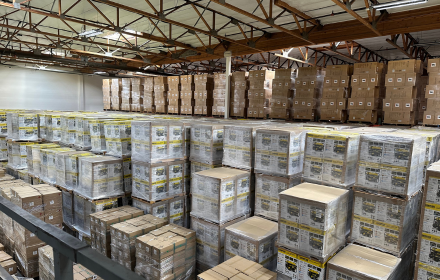Common Abbreviations of International Trade Terms

In the fast-paced world of international trade, clear and concise communication is essential. Abbreviations are widely used to save time and ensure that everyone involved understands key terms quickly. Knowing these abbreviations can help streamline processes, avoid misunderstandings, and ensure smooth operations. Below is a breakdown of common abbreviations related to payments, measurements, packaging, and logistics in international trade.
Understanding payment-related abbreviations is crucial in the buying and selling process, especially when discussing terms with international partners. Here are some commonly used terms:
CC: Collect – Payment will be collected by the consignee.
PP: Prepaid – Payment is made before shipment.
CFR: Cost and Freight – The seller pays for transportation to the destination port.
CIF: Cost Insurance and Freight – The seller pays for cost, insurance, and freight to the destination port.
INV: Invoice – A document outlining the goods sold and amount due.
T/T: Telegraph Transfer – A bank transfer used for international payments.
PO: Purchase Order – A buyer's official order of goods.
S/O: Shipping Order – Instructions for shipping goods.
C.O: Certificate of Origin – A document certifying the origin of the goods.
L/C: Letter of Credit – A bank guarantee that the buyer’s payment will be received on time.
CI: Commercial Invoice – A detailed invoice used for customs clearance.
PL: Packing List – A document listing the items included in the shipment.
Accurate measurements are critical for pricing and shipping calculations. These abbreviations help clarify the quantity and weight of goods:
CBM: Cubic Meter – Used to measure the volume of a shipment.
QTY: Quantity – The number of items.
WT: Weight – The overall mass of the goods.
N.W.: Net Weight – The weight of the goods excluding packaging.
G.W.: Gross Weight – The total weight of the goods, including packaging.
M/T: Metric Ton – A measurement of 1,000 kilograms.
EA: Each – Refers to individual items.
MOQ: Minimum Order Quantity – The lowest number of items a seller is willing to sell.
MIN: Minimum – The lowest value or amount allowed.
W: With – Used in combination with other terms.
W/O: Without – The opposite of "with."
Proper packaging is essential for protecting goods during transit. These abbreviations refer to the various forms of packaging:
PKG: Package – A general term for any container used to ship goods.
BG: Bag – A type of flexible packaging.
CTN/CTNS: Carton/Cartons – Cardboard boxes used for shipping.
PCS: Piece – A single item or unit.
PIC: Picture – Sometimes used to refer to visual documentation.
Spec: Specification – Detailed information about the product.
Ref: Reference – Used for tracking or identifying items.
S/M: Shipping Mark – Identifiers placed on packaging for shipping.
N/M: No Mark – Indicates that no shipping marks are present.
Efficient logistics are the backbone of international trade. These abbreviations help define shipping terms, parties involved, and the status of goods in transit:
T/T: Transit Time – The time it takes for goods to reach their destination.
CNEE: Consignee – The person or company receiving the goods.
SHPR: Shipper – The person or company sending the goods.
EXW: Ex Works – The buyer is responsible for all costs once the goods leave the seller’s premises.
FCA: Free Carrier – The seller delivers the goods to the carrier specified by the buyer.
FAS: Free Alongside Ship – The seller delivers the goods alongside the vessel.
FOB: Free On Board – The seller delivers the goods on board the ship.
DAF: Delivered at Frontier – The seller delivers the goods to the frontier but not beyond.
POD: Port of Destination – The port where the goods will arrive.
POL: Port of Loading – The port where the goods are loaded onto the ship.
ETD: Estimated Time of Departure – The expected date the ship will leave the port.
ETA: Estimated Time of Arrival – The expected date the ship will arrive at the destination.
ETC: Estimated Time of Closing – The time when cargo acceptance closes before departure.
ATA: Actual Time of Arrival – The exact time the ship arrives at the destination.
ATD: Actual Time of Departure – The exact time the ship leaves the port.
A/N: Arrival Notice – A notification from the carrier to the consignee regarding the arrival of the goods.
Familiarity with these abbreviations can simplify communication in the international trade industry. At DIDADI Logistics, we understand how important these terms are in ensuring timely and accurate shipments. Whether dealing with payments, measurements, packaging, or logistics, having a solid grasp of these abbreviations is key to keeping your global operations running smoothly.
If you need a reliable logistics partner, we welcome you to inquire about DIDADI Logistics' services for your international shipping needs.
Recommended Reading















